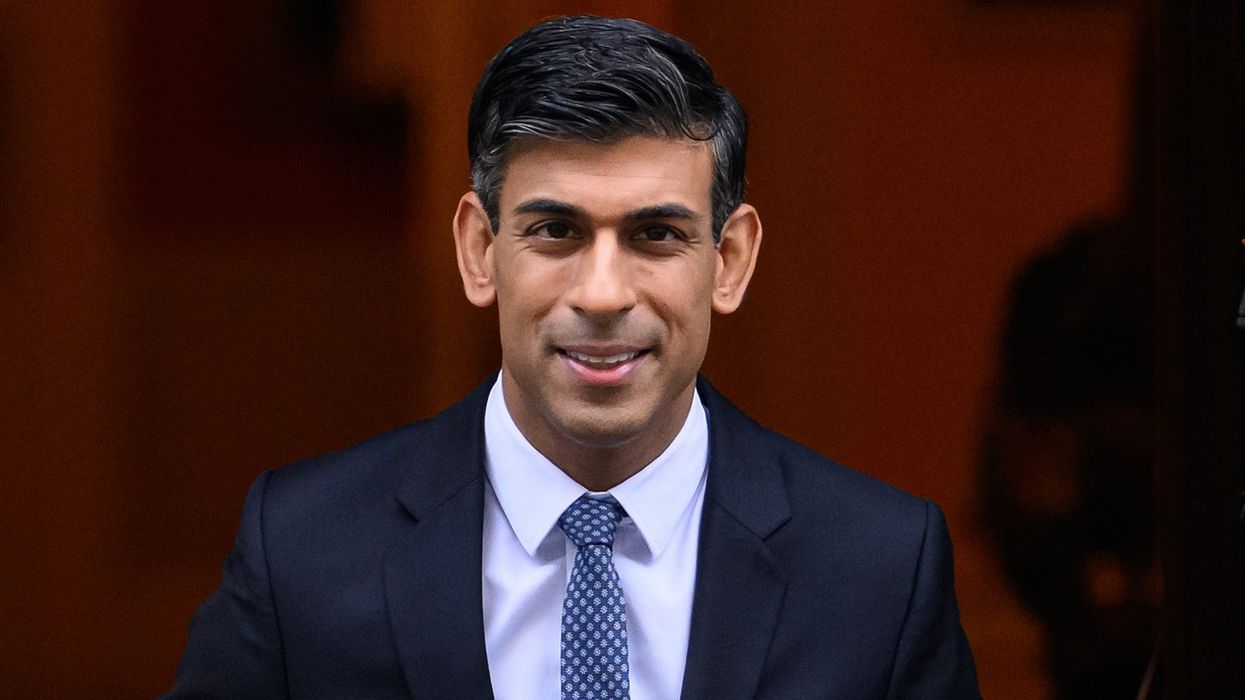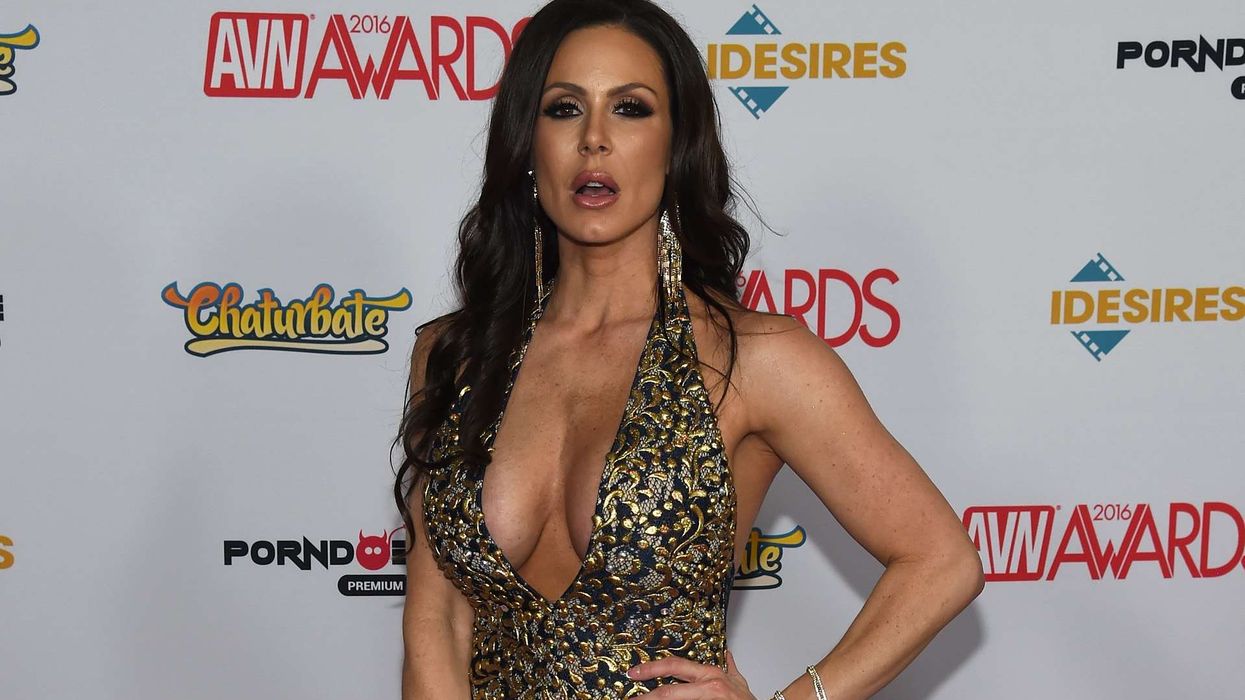FOR most south Asians, Diwali 2022 produced an auspicious present. In the history of the UK, its prime minister was a person of colour. Not only that, he was “one of us”. Further, he was anointed. His name, Rishi Sunak. Even those across the political divide knew they were witnessing history.
“I'm incredibly proud that Rishi is a prime minister, genuinely this is a source of pride to me that an Asian boy is the prime minister,” London mayor, Sadiq Khan, told the GG2 Power List. “This is this is above party politics because it shows how much our country's progressed that we've got an Asian prime minister. Of course, he's Conservative, but some things are bigger than party politics that for me was also really important.”
But it was not an easy route to the top of this country’s greasy political pole. In July 2022, he became the second cabinet colleague to resign and say he could no longer work for his boss Boris Johnson. The first, by a few minutes, was Sajid Javid, at health. But this resignation was different. Sunak lived next door to Johnson, and the signs of disagreement were already there. The then prime minister was mired in political sleaze with an investigation into Downing Street parties during Covid. Sunak was fined after he inadvertently spent minutes in a room with the then PM whose wife brought in a birthday cake. To make matters worse, Johnson backed an MP found guilty by the parliamentary standards commissioner of breaching parliamentary rules in lobbying ministers and officials. He was also forced to say sorry for appointing Chris Pincher to a government role after being told about a misconduct complaint against the MP. But when Johnson made a fake slur against the Labour leader, for which he never apologised, that Keir Starmer was responsible for not prosecuting the serial sex offender, Jimmy Savile, Sunak distanced himself from the smear. “Being honest, I wouldn’t have said it,” he told reporters. So, when it came to choosing the next leader, the MPs wanted him, but the grassroot Conservatives did not.
“The problem with Rishi is that he’s so straight-laced, so principled, he’s like a sixth form prefect and head boy” said one unnamed Tory source. “But the grassroots party members saw what he did as a betrayal of Boris, their favourite son. That’s why they voted for Liz Truss.”
But during the first campaign last year, there was concern among some south Asian Tories that Britain was “not ready to take orders from a brown boy”.
“There are always a 10 to 15 per cent in society who aren’t ready to be led by someone who is black or brown,” said one Asian Tory parliamentarian. “That proportion is what we would call racist in any other context. The party reflects society, and so they will be members who will, at any moment while these rules are in place, decide the fate of our country.”
But Sunak’s chance came when Johnson’s successor made erroneous decisions concerning the economy. Suddenly Sunak looked like a visionary because he warned throughout his first campaign last year that now was not the time to slash taxes. Truss was forced to sack her chancellor, Eton-educated Kwasi Kwarteng, and within weeks she too resigned. In the second leadership race, it came down to three candidates. The party rules are that candidates had to get 100 MPs to support them to stand. Johnson got the necessary support but pulled out of the race. The other, Penny Mordaunt, withdrew moments before the influential 1922 committee announced the result of the secret ballot of Tory MPs. This meant the grassroots could not stop Sunak, and it left Britain with its first prime minister of colour.
“The problem is that Rishi did not expect to pick up such a political mess,” one insider told the GG2 Power List. “He also had to make a fair few compromises and promises. Rishi has to keep the right of our party happy – that’s why we have Suella [Braverman] as home secretary – and he knows he must show that under him we’re worthy of the moniker that the economy is safe in our hands. At the moment, Rishi’s inherited a poisoned chalice.”
No matter what anyone says, of the main political parties it is the Conservatives which have elected three female leaders at its helm and created the most racially diverse cabinets in history. Yet despite anointing a south Asian, it does not mean the party is free from racism.
“If you look at Rishi’s credentials, head boy at Winchester, Oxford and then Stanford, he’s the archetypal establishment figure,” said another Tory. “But he faces the problem of having to appeal to a white electorate who still mistrust him on issues such as immigration. Many members want somebody who’s not going to be soft on immigration, and Rishi is probably having to overcompensate just to prove he can be trusted.”
Britain has had almost 13 years of Tory rule, and poll after poll suggest that Labour has a 20-point lead over the Conservative Party. This may be a blessing in disguise, said a Sunak supporter.
“If we get to a point later this year when Labour still has this lead, Rishi has nothing to lose. He can take off the shackles, and we may see a Rishi unleashed. He’s currently straight-jacketed and he can’t be as agile as he would ordinarily be. The fringes of the party are stopping him. If he had a personal mandate that wasn’t constrained by our disunity, we’d see a pragmatic individual not driven by ideology but what works. Think about it. The Northern Ireland Protocol. European Union. Immigration. If his hands weren’t tied, Rishi would do what needs to be done, rather than think about those who could oust him at any moment. The closer we get to a general election, the more he needs to show results, and there will come a turning point when he decides he’s got nothing left to lose – it’s do or die.”
Sunak has form for pulling rabbits out of bag and turning potential failures into success. Valentine’s Day 2020 will forever have an added piquancy for Prime Minsiter Sunak. It was the day when his very good friend, and then boss, Sajid Javid, resigned after Johnson ordered him to fire his aides. That left Sunak going from being the Treasury chief secretary to chancellor. The MP for Richmond in north Yorkshire had just four weeks to deliver his first budget, something his predecessor never got to do. Not only that, Sunak had to do so in the middle of a global pandemic, and he won huge plaudits on his side of the aisle, business and the NHS.
“The biggest rabbit he pulled out of the hat, which was the furlough scheme, is undoubtedly one of the things I would say has been pivotal in retaining some economic stability and personal security for a lot of people in the country,” said one Westminster insider, who did not wish to be named. “To do that as a relatively new chancellor – at that point he wasn't even 40 years old – it was a huge responsibility on relatively young, let's be clear, pretty inexperienced, shoulders.”
Sunak cuts a dashing figure; some have described him as the Conservative equivalent of Labour’s Tony Blair when he took over his party in 1994. Indeed, the Daily Mail, the bastion of white, middle England, rightly in hindsight, heralded him “PM in waiting”.
He has achieved more in his 42 years than many of us will in a lifetime. Head boy at the independent boarding school, Winchester College; Oxford university beckoned; as did being a Fulbright Scholar at the prestigious Stanford University. Sunak worked at Goldman Sachs and hedge funds The Children’s Investment Fund and Theleme. And he obviously takes calculated risks. Consider for a moment, a south Asian putting himself up for an ultra-safe Conservative seat where three per cent are black or Asian.
As a former leader of the Tories, Lord Hague, told the Power List previously, “When he was getting to know the constituency, a few weeks after he was selected, I met up with him for a coffee one morning. I said, ‘What are you going to do next?’ He said, ‘I’m going to Wensleydale to milk cows.’ I said, ‘What? I was a member for 26 years here, OK, so I did visit the farms a lot and asked the farmers about their businesses, but you don’t really have to go milking the cows.’ He said, ‘No, I’m determined to understand what it’s like and how the business works, what the future is for farming, I’m going to put my wellies on and this morning, I’m going milking cows.’ That shows you what sort of person he is. It’s very impressive,” the constituency’s previous MP has said.
Unlike his predecessors, Sunak, sources tell us, is a “details man”. He reads briefing notes and then asks for more information, and he never attends any meeting unprepared. Hard work and diligence remain Sunak’s trademark. In January 2018, three years after entering parliament, the then prime minister, Theresa May, plucked him from the backbenches, appointing him junior minister at the ministry for communities and local government. Others quickly saw his talent and in July 2019, Sunak became chief secretary to the Treasury, with a seat at the Cabinet table.
But since becoming prime minister, friends and foe have questioned Sunak’s judgement. The police fined him for not wearing a seatbelt when filming a social media video. This from a man who appears to micro-manage every part of “Brand Rishi”. Critics also point to Sunak dithering on sacking the former party chair, Nadhim Zahawi, over serious breaches of the ministerial code over his tax affairs. And they also dislike the fact that he has not asked deputy prime minister and justice secretary, Dominic Raab, to step down while he is being investigated for bullying senior civil servants.
One parliamentarian told the Power List said, “Rishi is strong minded, so it is not bad advisers. His judgement 90 per cent of the time is spot on. But remember he comes from a professional background, and he expects everyone else to be as professional as he is. But he is realising that he has a wide variety of competence around him. Remember, he rose to PM just seven years after entering parliament, and he is not a career politician. Rishi won’t do anything unless there’s been a process. So, you saw with Nadhim that once the process ended, he cut ties immediately. Even though Dominic supported him during the campaign, if the inquiry finds against him, Rishi will expect him to resign, or he will sack him. In that sense, he can be ruthless.”
What should have endeared Sunak to grassroots Tories is his “back story”. It is one of a middle-class aspirational family done great. Sunak’s father and mother were medics and ran a local pharmacy. When he went to Winchester, his mother would tell customers stories of her son’s progress. Then, of course, his going up to Oxford, onto Goldman Sachs, Stanford, and eventually, parliament will mark him out to be the aspirational story not only every Asian dreams about, but Conservatives too. The question remains whether the Tory grassroots will be motivated enough to vote for him and give him the missing political mandate he so needs, or will they hope for a Johnson return?
“Rishi’s under siege,” said a Westminster source. “He wants to go forward with his agenda, and every time he tries to do that something or someone gets in the way. Boris has now started to make his voice louder by warning, through friends, not to jettison his plan over the Northern Ireland Protocol and the EU [trading agreement]. We’ve also seen former cabinet colleagues and backbenchers make things difficult for Rishi. It’s incredibly unhelpful putting a loaded gun to Rishi’s head.”
Sunak’s rise to the top has not been without drama. His father-in-law is the Indian billionaire NR Narayana Murthy, co-founder of Infosys. But it was his wife Akshata Murty who became the target of the media. As a so-called “non-dom”, Murty did not have to UK tax on her overseas income. That saved her an estimated £2.1 million in taxes. This is perfectly legal, and the UK government estimates there are 68,300 non-doms. At the time, the Labour Party described it as "breathtaking hypocrisy" that the chancellor's wife had reduced her tax bill while her husband, as chancellor, raised taxes for millions of workers.
Sunak maintained that his wife had done nothing wrong, and he told The Sun newspaper, "To smear my wife to get at me is awful. Every single penny she earns in the UK she pays UK taxes on... and every penny that she earns internationally, for example in India, she would pay the full taxes on that."
Murty is an Indian citizen, and the Power List understands she owns a 0.9% stake in Infosys, worth about £700 million. At the height of the controversy, she was forced to put out a statement to clarify her tax dealings.
Her spokesperson said, "Akshata Murty is a citizen of India, the country of her birth and parents' home. India does not allow its citizens to hold the citizenship of another country simultaneously. So, according to British law, Ms Murty is treated as non-domiciled for UK tax purposes. She has always and will continue to pay UK taxes on all her UK income."
In April 2022, Murty said she would now pay UK taxes on all her overseas income. She told the BBC, "It has become clear that many do not feel it is compatible with my husband's role as chancellor. I understand and appreciate the British sense of fairness and I do not wish my tax status to be a distraction for my husband or to affect my family."
The couple met when they were both studying at Stanford University in California. They have two daughters, 11-year-old Krishna, and Anoushka who is nine.







